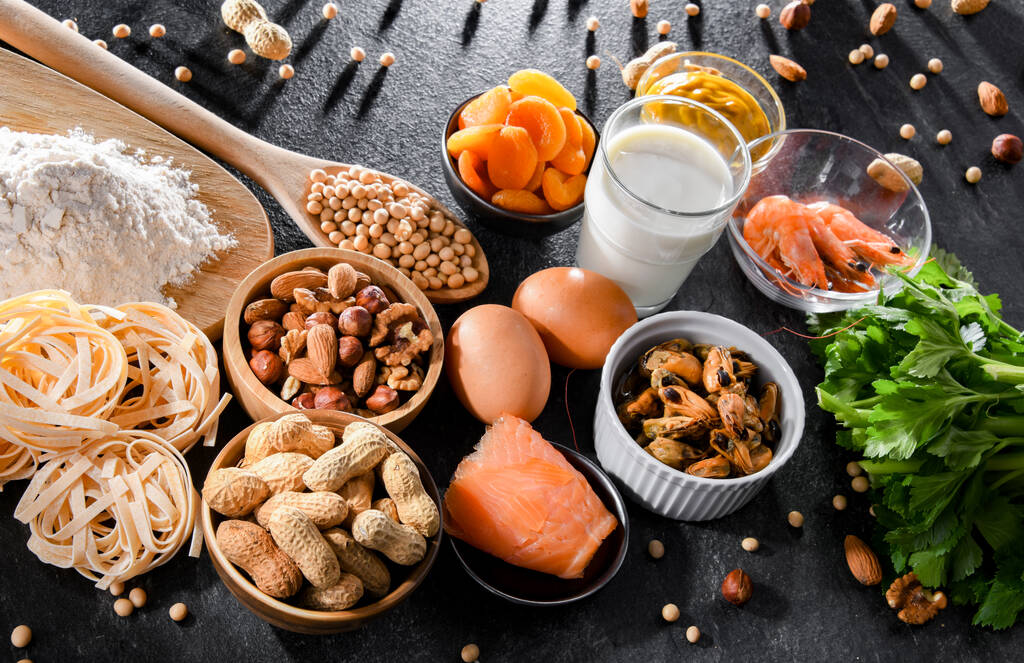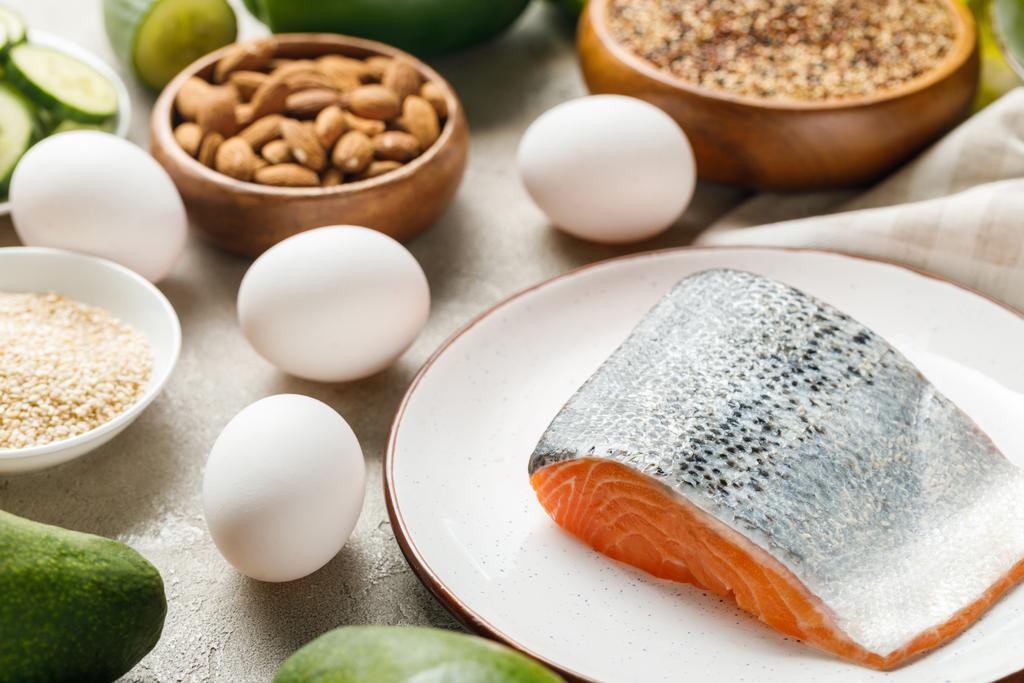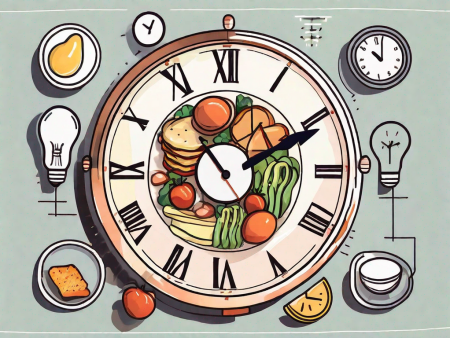Discover the intricate relationship between protein and metabolism in this insightful article.
How Does Protein Affect Metabolism?
Protein – it’s not just for bodybuilders and fitness enthusiasts. This mighty macronutrient plays a crucial role in your metabolism, affecting everything from cell repair to energy production. Understanding how protein impacts your body’s natural processes can help you make smarter choices when it comes to fueling your system. So, let’s dive in and unravel the fascinating relationship between protein and metabolism!

Understanding the Role of Protein in the Body
Before we delve into the nitty-gritty, let’s start by unraveling the mystery behind protein. So, what exactly is protein? It’s not just some random nutrient lurking in your meals; protein is the building block of life, quite literally! It’s made up of amino acids, which are like the superheroes of the molecular world, working tirelessly to keep your body functioning at its peak.
Protein is an essential macronutrient that plays a vital role in various physiological processes in the body. It is involved in the growth, repair, and maintenance of tissues, as well as the production of enzymes, hormones, and antibodies. Without protein, our bodies would struggle to perform even the most basic functions.
The Building Blocks: What is Protein?
Picture this: protein is like a construction crew, working diligently to build and repair your body’s cells, tissues, and organs. It’s the backbone of your muscles, hair, skin, and nails. Without protein, your body would resemble a dilapidated building on the brink of collapse. We definitely don’t want that!
Protein is composed of long chains of amino acids, which are organic compounds that contain carbon, hydrogen, oxygen, nitrogen, and sometimes sulfur. There are twenty different amino acids that can be combined in various sequences to form different proteins. Each amino acid has its own unique properties and contributes to the structure and function of the protein it is a part of.
When we consume protein-rich foods, such as meat, fish, eggs, dairy products, legumes, and nuts, our bodies break down the protein into its individual amino acids. These amino acids are then absorbed into the bloodstream and transported to the cells throughout the body. Once inside the cells, the amino acids are reassembled into new proteins that are specific to the needs of each cell.
Protein’s Role in Cell Repair and Maintenance
Now let’s explore one of protein’s crucial missions – cell repair and maintenance. Every day, your body faces wear and tear, like a bustling city weathering the elements. But fear not, protein swoops in to save the day! It helps repair damaged cells and ensures they function optimally, just like a skilled repairman giving your body a fresh coat of paint.
When cells are damaged due to injury, illness, or normal metabolic processes, protein steps in to facilitate the repair process. It provides the necessary building blocks to rebuild and regenerate damaged tissues. Additionally, protein plays a key role in maintaining the integrity of cell membranes, which are essential for proper cell function and communication.
Protein also plays a crucial role in the immune system. It helps produce antibodies, which are proteins that recognize and neutralize foreign substances, such as bacteria and viruses. These antibodies act as the body’s defense mechanism, protecting us from harmful invaders and keeping us healthy.
Furthermore, protein is involved in the production of enzymes and hormones, which are responsible for regulating various bodily processes. Enzymes are catalysts that speed up chemical reactions in the body, while hormones act as messengers, transmitting signals between cells and organs. Without protein, these essential biological processes would be disrupted, leading to imbalances and dysfunction.
In conclusion, protein is not just a nutrient that fills our plates; it is a fundamental component of life itself. From building and repairing tissues to supporting the immune system and regulating bodily processes, protein plays a multifaceted role in maintaining our overall health and well-being. So, next time you enjoy a protein-rich meal, remember the incredible work that protein does behind the scenes to keep your body functioning optimally.
The Connection Between Protein and Metabolism
Okay, so now that we know the superhero-like qualities of protein, let’s see how it relates to your metabolism. Your metabolism, dear reader, is your body’s very-own power plant. It’s responsible for converting the food you eat into energy, keeping your engine revving and your body buzzing.
But what exactly is metabolism? Well, think of it as a complex network of chemical reactions that occur within your body to sustain life. It’s like a bustling city, with different pathways and processes working together to keep everything running smoothly.
How Protein Influences Metabolic Rate
First things first, protein has the power to rev up your metabolic rate. It’s like giving your metabolism a shot of caffeine, without the jitters! Protein requires more energy to digest compared to fats and carbs, meaning your body burns more calories in the process. It’s like having a little fiery furnace inside you, melting away those pesky extra calories.
But how does this actually happen? Well, when you consume protein-rich foods, your body breaks them down into individual amino acids. These amino acids are then used to build and repair tissues, including muscle tissue. And here’s the interesting part: muscle tissue is more metabolically active than fat tissue. So, the more muscle you have, the higher your metabolic rate. Protein helps you build and maintain that muscle, keeping your metabolic fire burning bright.
Protein and Energy Production
But wait, protein’s role in metabolism doesn’t stop there! It also plays a crucial role in energy production. Here’s the deal: protein is an essential component of enzymes, the chemical messengers responsible for facilitating the production of energy. Think of protein as the conductor of an orchestra, guiding the symphony of energy creation within your cells.
When you consume protein, it gets broken down into amino acids, as mentioned earlier. These amino acids then enter the energy production pathway, where they participate in various chemical reactions to generate adenosine triphosphate (ATP), the molecule that serves as the primary source of energy in your cells. So, without protein, your energy production would come to a screeching halt!
But that’s not all. Protein also helps regulate your blood sugar levels, which is crucial for maintaining a steady supply of energy throughout the day. It does this by slowing down the absorption of glucose into your bloodstream, preventing sudden spikes and crashes in blood sugar. This means you’ll have a more stable and sustained energy supply, keeping you focused and energized.
Furthermore, protein plays a role in thermogenesis, which is the process of heat production in your body. When you consume protein, your body has to work harder to break it down and absorb it, which generates heat. This increase in heat production can slightly raise your body temperature and contribute to the overall energy expenditure.
So, as you can see, protein is not just a simple nutrient. It’s a powerful player in the intricate dance of metabolism. From boosting your metabolic rate to fueling energy production and regulating blood sugar levels, protein is an essential component of a healthy and efficient metabolism.
The Impact of Protein on Weight Management
Now, let’s talk about everyone’s favorite topic – weight management! If you’re looking to shed some pounds or maintain a healthy weight, protein can be your trusty sidekick on this journey.
Protein’s Effect on Appetite and Satiety
Ever had a meal only to find yourself famished an hour later? Protein is here to save you from that never-ending cycle of hunger! Unlike its sneaky accomplice, carbohydrates, protein can keep you feeling full and satisfied for longer. It doesn’t let your stomach play tricks on you, making those midday snack attacks a thing of the past.
But how does protein achieve this magical effect on appetite and satiety? Well, when you consume protein-rich foods, they trigger the release of hormones in your gut that send signals to your brain, telling it that you’re full. These hormones, such as peptide YY and glucagon-like peptide-1, help regulate your appetite and reduce cravings. So, not only does protein keep you feeling satisfied, but it also helps you resist the temptation of reaching for unhealthy snacks.
Furthermore, protein takes longer to digest compared to carbohydrates and fats. This means that it stays in your stomach for a longer period, slowing down the emptying process and keeping you feeling fuller for an extended period. So, if you want to avoid those mid-afternoon energy crashes and the subsequent urge to grab a sugary pick-me-up, incorporating protein into your meals and snacks is the way to go.
Protein and Fat Burning: What’s the Link?
But that’s not all! Protein has a secret weapon when it comes to weight management – it can actually help your body burn fat more efficiently. How, you ask? Well, protein increases your body’s thermogenic effect, which simply means it takes more energy for your body to digest and process protein. That’s right, you can turn your body into a fat-burning machine!
When you consume protein, your body has to work harder to break it down into its amino acid components. This process, known as protein synthesis, requires more energy compared to the digestion of carbohydrates and fats. As a result, your body burns more calories during the digestion and absorption of protein-rich foods. This increased calorie expenditure contributes to weight loss and can help you achieve your desired body composition.
Additionally, protein plays a crucial role in preserving and building lean muscle mass. When you’re on a weight loss journey, it’s essential to maintain muscle mass as it helps boost your metabolism. The more muscle you have, the more calories your body burns at rest. Protein provides the building blocks necessary for muscle repair and growth, ensuring that you retain your hard-earned muscle while shedding unwanted fat.
Moreover, protein has a higher thermic effect of food (TEF) compared to carbohydrates and fats. TEF refers to the increase in energy expenditure that occurs during the digestion, absorption, and storage of nutrients. Protein has a TEF of around 20-30%, meaning that 20-30% of the calories from protein are burned during digestion and processing. In contrast, carbohydrates have a TEF of 5-10%, and fats have a TEF of 0-3%. So, by incorporating protein into your diet, you can maximize your calorie burn and enhance your weight loss efforts.
The Importance of Protein Quality and Timing
Now that we’ve covered the wonders of protein, it’s time to dive into the specifics: quality and timing. Not all proteins are created equal, and knowing when to consume protein can maximize its metabolic benefits.
Choosing High-Quality Protein Sources
When it comes to protein, quality matters. Opt for high-quality sources like lean meats, poultry, fish, eggs, and plant-based protein options like legumes and nuts. These sources provide you with all the essential amino acids, ensuring you have the right tools for optimal metabolic performance.
The Ideal Time to Consume Protein for Metabolic Benefits
Timing is key, my friend! To reap the full metabolic benefits, aim to distribute your protein intake evenly throughout the day. Include protein-rich foods in each meal and snack. This keeps your metabolism humming along steadily, like a well-tuned engine.
Potential Risks of High-Protein Diets
As with any superhero story, there are potential risks. While protein is indeed a valuable ally, excessive protein intake can have its drawbacks.

Understanding the Risks of Excessive Protein Intake
Too much of a good thing can sometimes be, well, not so good. Consuming excessively high levels of protein for prolonged periods can strain your kidneys and overload your system. Remember, balance is key when it comes to protein intake!
Balancing Protein Intake for Optimal Health
So, how can you strike a harmonious balance? It’s simple, really! Opt for a moderate protein intake that aligns with your specific needs and consult with a healthcare professional if you have any concerns. They can guide you on the right path, ensuring your protein intake fuels your body without overwhelming it.
In conclusion, dear reader, protein is truly a powerhouse when it comes to metabolism. From building blocks to cell repair, increasing metabolic rate to aiding weight management, protein plays a vital role in keeping your body functioning like a well-oiled machine. Embrace the superpowers of protein, fuel your body wisely, and watch as your metabolism works its magic!







